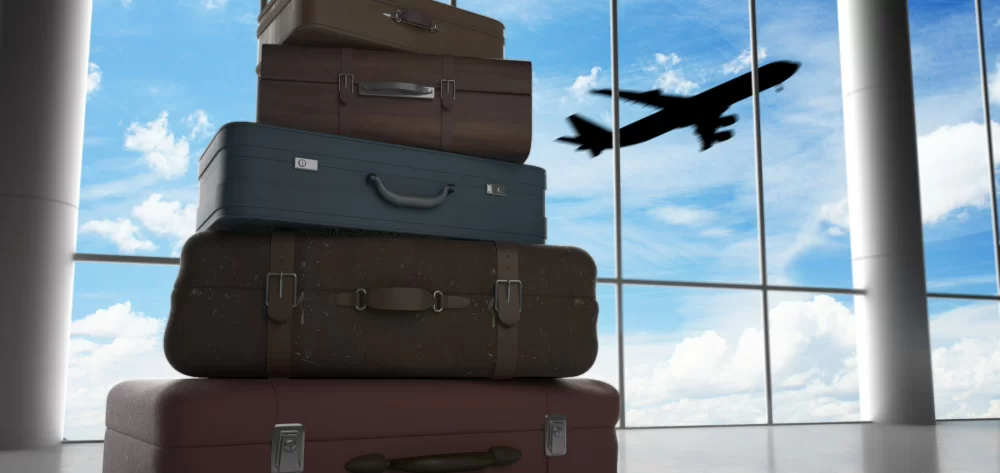Here, moneyland.ch team answers the biggest financial questions related to leaving Switzerland.
1. Can I keep my Swiss bank account?
That depends on which Swiss bank you use. Some banks let you keep your account. Some let you keep it if you meet certain criteria (receiving a pension or other income in Switzerland, for example). Some banks require you to close your bank account when you leave Switzerland. The vast majority of banks which let you keep your account as a non-resident charge supplemental non-resident account fees.
If you need a Swiss bank account, ask your bank whether you can keep your account after you leave Switzerland, and which non-resident fees apply. Do this well ahead of your move so that, if necessary, you have time to find a different Swiss bank which is favorable to non-residents.
2. Do I have to cancel contracts myself?
Yes. Although certain contracts are voided when you leave Switzerland, the onus generally rests on you to terminate any Swiss contracts you may have. Contracts to review include mobile plans, home Internet plans, insurance policies, gym memberships, newspaper subscriptions, food delivery subscriptions, and club or association memberships. Many Swiss service providers automatically extend contracts and continue to bill you if you do not give notice of termination. In the worst case, this can result in debt collection cases.
You can find practical information in the guide to terminating Swiss insurance policies and the guide to terminating Swiss mobile plans.
3. Am I liable to pay Swiss taxes after I leave?
Your tax residence in Switzerland ends when you give up your residence. However, you will have to pay Swiss taxes on your income and wealth for the period between the start of the calendar year and the date on which your Swiss residence ends.
Note: If you earn income from self-employment in Switzerland, or if you collect rent money on Swiss real estate that you own, this income may still be taxable in Switzerland. If you own real estate in Switzerland, you must pay Swiss property taxes for that property. You also pay Swiss property capital gains taxes if you sell a Swiss property, even if you do not live in Switzerland. Taxes and tax rules vary between cantons.
4. Can I keep my Swiss health insurance?
That depends. You can keep your Swiss mandatory health insurance if you meet all of these criteria:
In most cases, you are required to keep your Swiss mandatory health insurance if you receive a Swiss OASI pension. But if you move to Austria, France, Germany, Italy, Portugal, or Spain, you can choose between Swiss or local health insurance.
If you do not meet the criteria above, you can only keep your compulsory Swiss health insurance until you settle in another country.
A number of Swiss health insurance companies offer voluntary international health insurance for people living outside of Switzerland. This can be worth considering if adequate health insurance is not available in the country you are moving to.
5. Can I keep my Swiss phone number?
Swiss mobile plans are generally only available to residents of Switzerland. If you want to keep your Swiss phone number, you should port the number to a Swiss prepaid mobile offer before you move.
You can keep the Swiss prepaid mobile number after moving abroad, and continue using it to receive phone calls. You can also use it to get online and make calls with mobile roaming if necessary. Swiss prepaid mobile accounts can generally be topped up online using a credit card or debit card. You can compare Swiss prepaid mobile offers here.
6. Can I withdraw my Swiss government pension benefits (pillar 1)?
That depends. Depending on your citizenship, you may be able to cash out your total OASI contributions paid by you and your Swiss employers during your time in Switzerland.
You can (and should) request to have your Swiss OASI contributions reimbursed when you leave Switzerland if you meet these criteria:
-
You are not a Swiss citizen nor a citizen of a country that Switzerland has a social security agreement with (see point 14).
-
You are not both moving to an EFTA or EU country and married to a citizen of Switzerland or an EFTA or EU country.
You must submit the request to the Swiss Compensation Office (SCO) in Geneva. A Swiss withholding tax is deducted from your benefits by the canton of Geneva before the money is paid out.
7. Can I take my Swiss occupational pension fund benefits (pillar 2)?
That depends on which country you move to.
-
If you move to a country outside of EFTA and the EU: You can cash out your Swiss pillar 2 occupational pension fund benefits and vested benefits in full. You also have the option of leaving your benefits vested in Switzerland (in a vested benefits savings account, retirement fund, or asset management service, for example).
-
If you move to an EU or EFTA member country: Your compulsory Swiss pension fund benefits must remain in a Swiss vested benefits foundation. The foundation will hold your benefits until you reach retirement age. It is possible to withdraw benefits early in some cases (for home ownership, for example). If you or your Swiss employers have made additional, voluntary pension fund contributions on top of the mandatory contributions, you can withdraw these voluntary benefits when you leave Switzerland.
In both cases, a withholding tax is levied by the canton in which your Swiss pension fund or vested benefits foundation is domiciled. If the country you move to has an eligible double-taxation agreement (DTA) with Switzerland, you can apply for reimbursement of the Swiss withholding tax. You must provide the Swiss tax office with proof of tax residence in your new country. A number of countries, including many EU countries, have DTAs that cover Swiss pension benefits. If the country you are moving to does not have a DTA with Switzerland that covers Swiss occupational pension benefits, then you cannot reclaim the Swiss withholding tax.
Note: Swiss vested benefits foundations generally charge fees for withdrawals due to emigration. You can find these on the product information pages in the moneyland.ch vested benefits account comparison.
You also have the option of leaving your benefits vested in a Swiss vested benefits foundation until you reach Swiss retirement age.
8. Can I take my Swiss tax-privileged retirement savings (pillar 3a)?
Pillar 3a private retirement savings can be cashed out when you leave Switzerland, regardless of which country you move to. A Swiss withholding tax is deducted from your assets by the canton in which the retirement foundation that holds your pillar 3a assets is domiciled. This may be different from the location of the bank or asset management service that offers the pillar 3a account, retirement fund, or retirement savings app. You can reclaim the Swiss withholding tax if the country you move to has a DTA with Switzerland that allows for this.
Many foundations charge a fee when you withdraw because of emigration. You can find the fees on the product information pages in the moneyland.ch pillar 3a account comparison.
You also have the option of keeping your pillar 3a assets in a Swiss retirement foundation after you leave Switzerland until you reach Swiss retirement age.
If you continue to earn an income in Switzerland as a cross-border worker, you may be able to continue to pay into the Swiss pillar 3a to lower the Swiss withholding tax deducted from your Swiss salary. Whether or not you can do this depends on which foreign country you live in and which Swiss canton you work in. You can find more information in the financial guide for cross-border workers.
Is it worth moving your Swiss pension fund benefits and pillar 3a savings to a low-tax canton?
Moving your pension fund benefits and pillar 3a savings to a low-tax canton before you leave Switzerland is only beneficial if you move to a country which does not have a DTA with Switzerland that lets you reclaim the Swiss withholding tax. In that case, minimizing the Swiss withholding tax is important because it comes on top of the taxes you may pay for the withdrawal in your new country of residence.
However it is important to study the fees charged by vested benefits foundations and retirement foundations (pillar 3a) for early withdrawals due to emigration. Many foundations in low-tax cantons (like Schwyz) charge relatively high fees (1000 francs, for example). Additionally, your existing foundations may charge you fees to close your vested benefits or pillar 3a accounts. Make sure to compare the potential tax savings with all the costs involved to determine whether moving your money to a low-tax canton before withdrawing it will actually save you money. You can find the fees on the information pages of accounts in the vested benefits account and pillar 3a account comparisons.
9. Can I keep contributing to my Swiss old-age pension and disability insurance?
In some cases, yes, and doing so can be beneficial if you are moving to a country where the social security schemes are not adequate for your financial needs. As long as you remain voluntarily subscribed to the Swiss social old age and survivors insurance (OASI) and social disability insurance (DI), you continue to build your Swiss old-age pension. You can claim a Swiss disability pension if you become disabled. If you pass away, your eligible dependents can claim a Swiss survivor’s pension.
You can subscribe to the voluntary OASI/DI if you meet the following criteria:
-
You are a Swiss citizen or the citizen of an EFTA or EU country.
-
You are moving to a country which is not in EFTA or the EU.
-
You have lived in Switzerland and contributed to the OASI for at least 5 years prior to leaving.
If you choose to keep your Swiss OASI and DI pension schemes, you must apply at the Swiss Compensation Office (SCO) within 12 months of leaving Switzerland.
You pay the full OASI and DI contributions based on your income. Foreign employers are not required to cover half of your contributions like Swiss employers are. You are charged penalty interest of 5 percent per annum if you fail to make payments, and you may be disqualified from participating in the voluntary OASI after the second late-payment notice.
Note that subscribing to the voluntary OASI does not relieve you of local social security obligations in your country of residence. Take time to consider the taxes and social security contributions you will have to pay in your new country of residence to determine whether or not you can afford to continue participating in the Swiss OASI/DI scheme.
10. What will happen to my Swiss debts?
All entries in Swiss debt collection suits remain in place when you leave Switzerland. Assets which you hold in Switzerland can be seized to repay your debts. Your Swiss pension fund benefits and pillar 3a assets can also be seized as soon as you withdraw them. You can find detailed information about which assets can and cannot be seized here.
11. Will I lose my Swiss unemployment insurance payments?
If you receive unemployment benefits from Swiss social unemployment insurance, you can continue to receive these payments for up to three months after you leave Switzerland if you meet these criteria:
As the citizen of an EFTA country, you can continue receiving benefits for up to three months after you move from Switzerland to another EFTA country. The same applies to citizens of EU countries who move to an EU country.
If you do not meet the above criteria, you will no longer receive unemployment benefits.
12. Will I still receive Swiss child benefits after leaving Switzerland?
If you have children and receive Swiss family benefits through your employer, you can continue to receive these benefits if you meet these criteria:
-
You continue to be employed by a Swiss employer after leaving (as a cross-border worker, for example)
-
You are a Swiss citizen or a citizen of an EFTA or EU country
-
Your children live in a country in EFTA or the EU.
If you meet the above criteria, you can continue receiving child allowances and education allowances after leaving Switzerland.
If you also receive child benefits in the country your children live in, you must report these to the Swiss social security office. In that case, you will receive the difference between the foreign child benefits and Swiss child benefits.
13. Can I continue to receive my disability pension after I leave Switzerland?
That depends. If you receive a disability pension from social disability insurance (DI), whether or not you can continue to receive your pension after you move will depend on several factors.
Disability level of 40-49 percent:
-
Swiss citizens can continue receiving a Swiss disability pension if they move to a country within the EU or EFTA.
-
Citizens of an EU country can continue receiving a Swiss disability pension after moving to an EU country.
-
Citizens of an EFTA country can continue receiving a Swiss disability pension after moving to an EFTA country.
-
Citizens of all other countries do not continue receiving a disability pension from the DI after leaving Switzerland.
Disability level of 50-100 percent:
-
Swiss citizens and citizens of countries which have a relevant social security agreement with Switzerland (see point 14) can continue receiving a Swiss disability pension no matter which country they move to.
-
Israeli citizens can continue to receive a DI pension after they move to Israel.
-
Citizens of all other countries do not continue receiving a disability pension after leaving Switzerland.
Important: Even if you are eligible to continue receiving a disability pension from the DI after leaving Switzerland, you will no longer receive possible supplemental benefits and benefits towards physical aids and rehabilitation. You will only receive your basic pension.
14. Will I continue receiving my Swiss old-age pension after leaving Switzerland?
If you are a Swiss citizen, you can continue to receive your old age pension from the OASI after leaving Switzerland. You receive this pension no matter where you live.
The same rule applies if you are the citizen of a country with which Switzerland has a social security agreement. These include:
The exact terms and conditions vary between each agreement.
Important: Even if you meet the above criteria, you will only receive your basic OASI old-age pension. If you receive supplemental benefits from the OASI, you will no longer receive these after you leave Switzerland.
You have to inform your social security office about the move. They will forward your pension information to the Swiss Compensation Office (SCO), from which you will receive your pension after you move abroad.
See point 4 for information about possible Swiss health insurance requirements for recipients of Swiss OASI pensions.
15. Can I claim a Swiss old-age pension after leaving Switzerland?
That depends. If you are a Swiss citizen or the citizen of a country which has a relevant social security agreement with Switzerland (see point 14), then you can claim a Swiss old-age pension from the OASI when you reach Swiss retirement age. To do this, you must contact the Swiss Compensation Office (SCO).
16. Will I keep receiving my Swiss survivor’s pension after leaving the country?
Yes. You can continue receiving your OASI survivor’s pension regardless of your citizenship and which country you move to.
Temporary expatriation
The information above applies when you leave Switzerland permanently. But the situation is different for temporary stays in foreign countries.
If you are sent to live and work abroad by your Swiss employer on a temporary basis, you can remain registered with Swiss social security. In that arrangement, you remain eligible for Swiss mandatory health insurance, Swiss child benefits, Swiss employer-based accident insurance, Swiss unemployment insurance, your Swiss pension fund, Swiss parental leave benefits, and the Swiss OASI and DI schemes. Your Swiss employer continues to pay their portion of social security and pension fund contributions.
In many cases, you can also retain partial residence in Switzerland during temporary stays abroad as a student.
More on this topic:
Health insurance for Swiss living abroad explained
International health insurance explained
Bank account fees for non-residents compared
Personal finance for digital nomads in Switzerland






